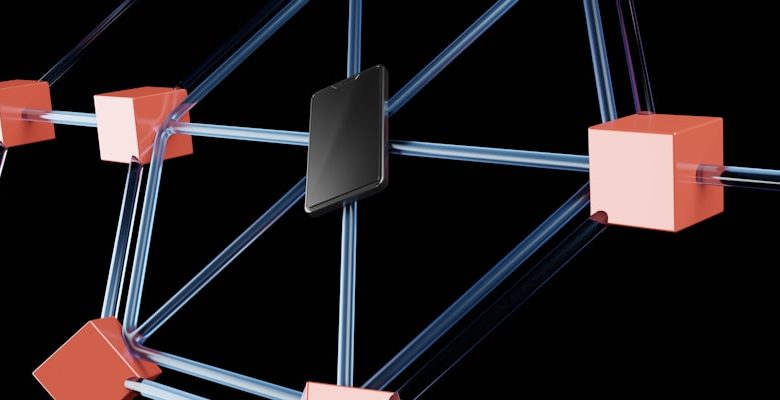The Impact of Zero-Knowledge Proofs on Blockchain Privacy

- The Evolution of Blockchain Privacy
- Enhancing Security with Zero-Knowledge Proofs
- Understanding Zero-Knowledge Proofs in Blockchain Technology
- Protecting User Data on the Blockchain
- The Potential of Zero-Knowledge Proofs for Privacy Protection
- Challenges and Opportunities in Implementing Zero-Knowledge Proofs on the Blockchain
The Evolution of Blockchain Privacy
The evolution of blockchain privacy has been significantly impacted by the introduction of zero-knowledge proofs. This innovative cryptographic technique allows transactions to be verified without revealing any sensitive information to the network. As a result, users can enjoy a higher level of privacy and security when conducting transactions on the blockchain.
Zero-knowledge proofs have revolutionized the way privacy is maintained on the blockchain. By allowing users to prove the validity of a transaction without revealing any unnecessary details, zero-knowledge proofs have become a powerful tool in protecting user data. This has led to an increased adoption of blockchain technology in various industries, as users can now trust that their sensitive information will remain secure.
In the past, blockchain transactions were often seen as transparent and easily traceable. However, with the implementation of zero-knowledge proofs, users can now transact with a greater level of anonymity. This has helped to address concerns about privacy and security on the blockchain, making it a more attractive option for individuals and businesses alike.
Overall, the evolution of blockchain privacy through the use of zero-knowledge proofs has had a profound impact on the way transactions are conducted on the blockchain. With this innovative technology, users can enjoy increased privacy, security, and anonymity when engaging in transactions, paving the way for a more secure and efficient blockchain ecosystem.
Enhancing Security with Zero-Knowledge Proofs
Zero-knowledge proofs have revolutionized the way security is enhanced in blockchain technology. By utilizing these innovative cryptographic techniques, users can prove the validity of their transactions without revealing any sensitive information. This advanced level of privacy protection ensures that personal data remains secure and confidential.
Understanding Zero-Knowledge Proofs in Blockchain Technology
Zero-Knowledge Proofs are a revolutionary concept in the realm of blockchain technology, offering enhanced privacy and security for users. These proofs allow one party (the prover) to demonstrate to another party (the verifier) that they possess certain information or knowledge without revealing what that information actually is. This means that transactions can be verified without disclosing sensitive data, ensuring confidentiality and integrity.
Zero-Knowledge Proofs work by enabling the prover to convince the verifier that a statement is true without revealing any additional information beyond the validity of the statement itself. This is achieved through complex cryptographic protocols that generate evidence of the statement’s truthfulness without exposing the underlying data. As a result, users can interact with blockchain networks anonymously and securely.
By implementing Zero-Knowledge Proofs in blockchain technology, users can enjoy enhanced privacy and confidentiality. This is particularly crucial in industries where data security and protection are paramount, such as finance, healthcare, and government. Zero-Knowledge Proofs have the potential to revolutionize how sensitive information is handled and verified on the blockchain, paving the way for a more secure and private digital future.
Protecting User Data on the Blockchain
One of the key advantages of zero-knowledge proofs in the realm of blockchain technology is their ability to enhance user privacy by protecting sensitive data. With zero-knowledge proofs, users can interact with the blockchain without revealing unnecessary information, thus reducing the risk of data breaches and identity theft. This added layer of security ensures that user data remains confidential and secure.
The Potential of Zero-Knowledge Proofs for Privacy Protection
Zero-knowledge proofs have the potential to revolutionize privacy protection in blockchain technology. By allowing one party to prove to another that a statement is true without revealing any additional information, zero-knowledge proofs offer a powerful tool for enhancing confidentiality and security. This innovative cryptographic technique enables transactions to be verified without disclosing sensitive data, such as the amount transferred or the identities of the parties involved.
Zero-knowledge proofs can be applied in various ways to safeguard privacy on the blockchain. For example, they can be used to authenticate users without revealing their credentials, ensuring that only authorized individuals can access certain information. Additionally, zero-knowledge proofs can enable selective disclosure, allowing users to reveal specific details about a transaction while keeping the rest confidential. This flexibility in information sharing enhances privacy and control over personal data.
Furthermore, zero-knowledge proofs can be instrumental in ensuring compliance with regulations such as GDPR, which require data protection by design and by default. By leveraging zero-knowledge proofs, blockchain platforms can demonstrate compliance with privacy regulations without compromising the integrity of the system. This not only enhances trust among users but also opens up new possibilities for secure and privacy-preserving applications.
Challenges and Opportunities in Implementing Zero-Knowledge Proofs on the Blockchain
Implementing zero-knowledge proofs on the blockchain presents both challenges and opportunities. While this technology offers a promising solution for enhancing privacy and security, there are several obstacles that need to be overcome to fully realize its potential.
- One of the main challenges in implementing zero-knowledge proofs on the blockchain is the computational overhead. These proofs require complex mathematical calculations, which can slow down transaction processing and increase resource consumption.
- Another challenge is the potential for scalability issues. As more users adopt zero-knowledge proofs, the blockchain network may struggle to handle the increased volume of transactions, leading to delays and higher fees.
- Additionally, there are concerns about the integration of zero-knowledge proofs with existing blockchain protocols. Compatibility issues could arise, requiring significant modifications to be made to the underlying infrastructure.
Despite these challenges, there are significant opportunities associated with implementing zero-knowledge proofs on the blockchain. One of the key benefits is the enhanced privacy and anonymity that this technology offers users. By allowing transactions to be verified without revealing sensitive information, zero-knowledge proofs can help protect user data from prying eyes.
Furthermore, zero-knowledge proofs have the potential to enable new use cases on the blockchain, such as secure voting systems, private financial transactions, and confidential data sharing. These applications could open up new revenue streams and drive innovation in the blockchain space.



